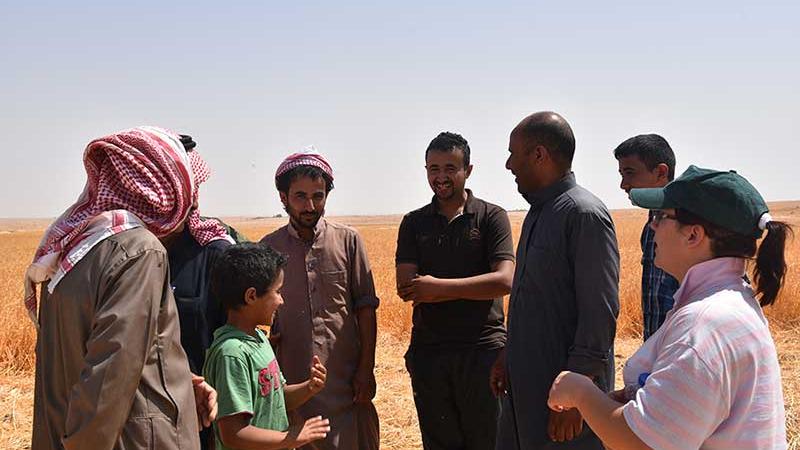Enhancing a traditional water-harvesting technique

Jordan’s ‘Badia’ is a vast arid area stretching across 80% of the country. It is a severely degraded ecosystem caused by mono-cropping and overgrazing over the past few decades. The ICARDA-managed Middle East Water and Livelihoods Initiative (WLI) worked with local communities and partners to promote the adoption of sustainable water and land management practices – helping farmers to optimize opportunities, raise their productivity, and reduce pressure on fragile resources.
Among the interventions being implemented is a ‘Marab’ water harvesting technology, which allows local farmers to grow crops in the desert. ‘Marab’ is an Arabic term used for relatively flat land in the ‘Badia’, where water runoff slows down and spreads across larger areas, causing sediment to deposit and enrich the soil.
“Marab is an ancient concept, based on the indigenous knowledge of the community,” said Dr. Stefan Strohmeier, Associate Scientist, Soil and Water Conservation, ICARDA. “ICARDA has provided science-based feedback on the hydrological watershed conditions for site selection and establishment.”
Recently, WLI scientists and partners from the Sustainable Environment and Economic Development (SEED) project visited Al Majedeah village to collect feedback from local farmers harvesting barley in their ‘Marab,’ on recent impacts during the last rainy season. Despite the late sowing and low levels of rainfall in the Badia during the last cropping season, the farmers are expecting to harvest 6 t/ha of yield, which will be used for fodder production, said Mrs. Mira Haddad, ICARDA Research Assistant.
Supported by the United States Agency for International Development (USAID) and the U.S. Forest Service, WLI works in seven countries including Egypt, Iraq, Jordan, Lebanon, Palestine, Tunisia and Yemen, responding to serious challenges resulting from water scarcity, land degradation, water quality deterioration, food insecurity and related health problems.
